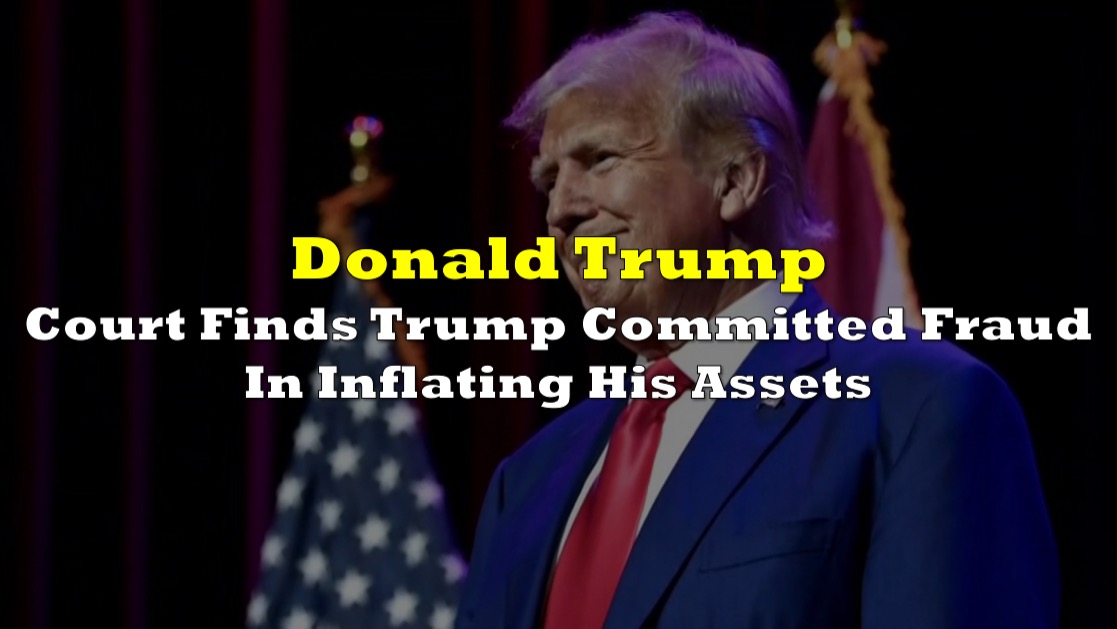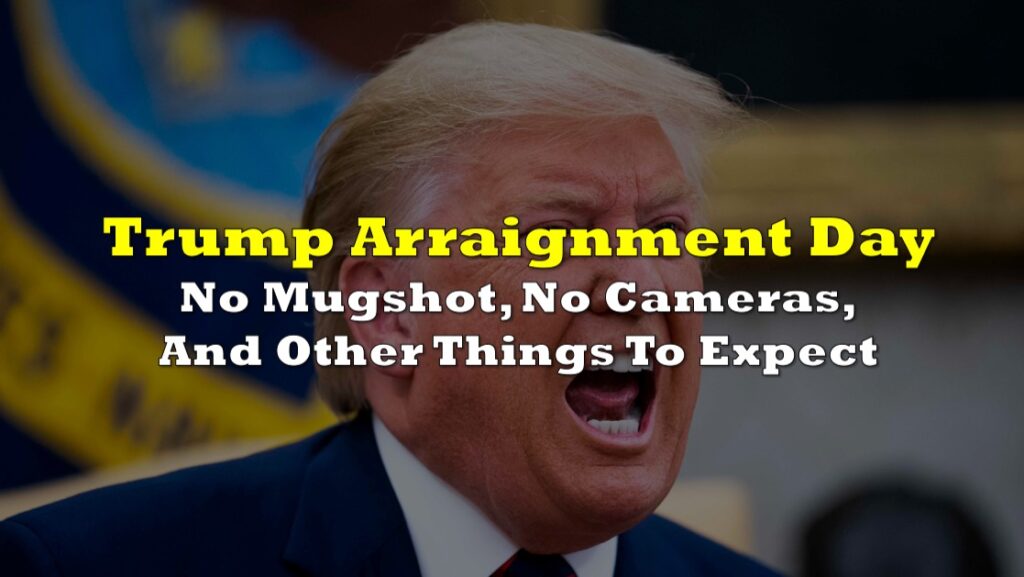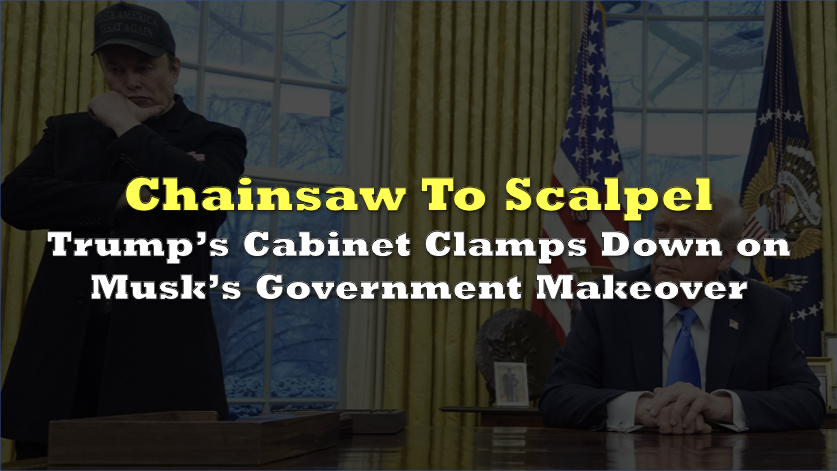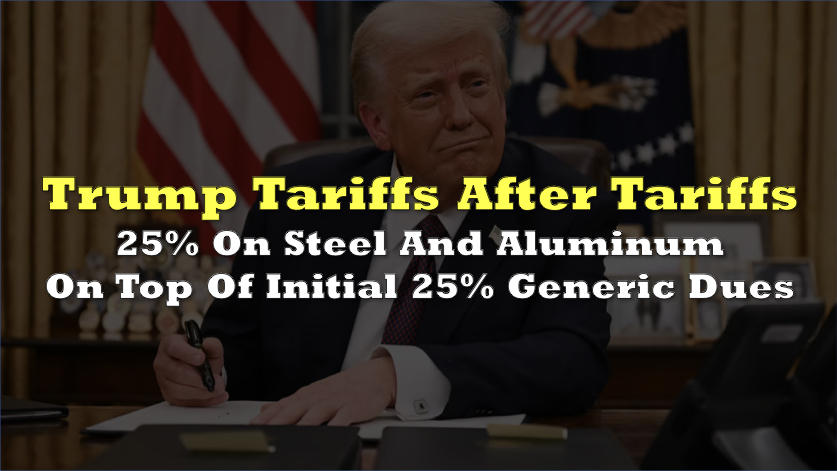In a landmark ruling on Tuesday, a New York judge delivered a decisive blow to former President Donald J. Trump, finding him guilty of persistent fraud in artificially inflating the value of his assets. Justice Arthur F. Engoron’s unexpected decision marked a significant triumph for Attorney General Letitia James in her legal battle against Trump, effectively eliminating the need for a trial to establish that he had dishonestly secured favorable terms on loans and insurance arrangements.
James contended that Trump had artificially inflated his property values by an astonishing $2.2 billion, seeking a penalty of approximately $250 million as part of a trial scheduled to commence as soon as Monday. In his ruling, Justice Engoron emphatically stated that the financial statements Trump submitted to banks and insurers “clearly contain fraudulent valuations that defendants used in business.”
Responding to the ruling, James tersely stated, “We look forward to presenting the rest of our case at trial.”
Trump’s legal representative, Christopher M. Kise, indicated that an appeal was likely, lambasting the decision as “outrageous” and “completely disconnected from the facts and governing law.” Kise argued that the judge had disregarded a prior appeals court decision and fundamental legal, accounting, and business principles.
In characteristic fashion, Trump denounced Justice Engoron as a Democrat and labeled him “deranged.”
“As an example, this Democrat Operative valued Mar-a-Lago, the most spectacular and valuable property in Palm Beach, Florida, to be worth as low as $18 Million, when in actuality, it could be worth almost 100 times that amount. He hated everything about me at a level that I have never seen before, even beyond the hatred of that displayed by Letitia James,” Trump wrote in his statement.
Trump statement reacting to NY judge finding him liable for fraud. My favorite part is, “If they can do this to me they can do this to YOU!” That is true. If you claim your name is worth $10 billion dollars and all your properties are worth 3x market value because you own them. pic.twitter.com/ioGZ6l7vjw
— Ron Filipkowski (@RonFilipkowski) September 26, 2023
While the trial will determine the size of the penalty, Justice Engoron’s ruling delivered a significant blow to Trump by granting one of the major punishments sought by James: the revocation of business certificates for several of Trump’s key New York properties. This action could have far-reaching consequences for the Trump family’s business empire.
The decision jeopardizes Trump’s control over prominent properties such as 40 Wall Street in Lower Manhattan and a family estate in Westchester County. Other New York properties, including Trump Tower in Midtown Manhattan and a Westchester golf club, also hang in the balance.
Trump created a Delaware business entity a year ago in an effort to avoid the consequences of the corporate death penalty a NY judge imposed on his business entities today. https://t.co/l7BKVVnu61
— Joyce Alene (@JoyceWhiteVance) September 26, 2023
Importantly, the order will not dissolve Trump’s vast corporate network, comprised of numerous entities. However, it could profoundly affect the company’s operations in New York. If Justice Engoron’s decision remains unaltered by an appeals court, it could spell the end for an entity employing hundreds of New Yorkers, effectively crippling the Trump organization.
“The decision seeks to nationalize one of the most successful corporate empires in the United States and seize control of private property,” remarked Kise.
The order would also unwind the Trump Organization L.L.C., a relatively minor entity primarily serving as a vessel for the company’s brand. Nonetheless, it has been closely associated with Trump since his early days as a developer, propelling his father’s outer-borough business into the heart of Manhattan.
NEW: If I am reading this right, Judge Engoron has found that Donald Trump committed fraud and has ordered the cancellation of all of his New York business certificates and the dissolution of the Trump Organization. pic.twitter.com/k2nRcK3L37
— Andrew Feinberg (@AndrewFeinberg) September 26, 2023
Despite the overshadowing presence of four unrelated criminal indictments against the former president, Justice Engoron’s decision, if upheld, will constitute the first tangible repercussion from a government investigation into Trump. By narrowing the issues for trial, Justice Engoron affirmed the core of James’s case and dealt a severe blow to Trump’s defense, which sought to dismiss numerous claims against him.
In his order, Justice Engoron vehemently criticized Trump’s defenses, accusing the former president and his co-defendants, including his adult sons and company, of ignoring reality when it suited their business interests. He scornfully noted, “In defendants’ world, rent-regulated apartments are worth the same as unregulated apartments; restricted land is worth the same as unrestricted land; restrictions can evaporate into thin air.” He added, “That is a fantasy world, not the real world.”
The judge further imposed sanctions on Trump’s lawyers for rehashing arguments he had previously rejected, ordering each to pay $7,500. He underscored that their repeated use of these arguments was “indefensible.”
Even if Trump’s appeal proves unsuccessful, he still has an opportunity to delay the trial or weaken the case. Trump has also sued Justice Engoron personally, with an appeals court expected to rule on this matter shortly. Should the appeals court rule against him, Trump will have to face the remainder of the case in a trial.
This move comes in the middle of Trump’s fresh presidential bid in 2024 where he currently leads the polls as the primary Republican nominee. Election officials in the State of Michigan are exploring the possibility of disqualifying the former president from running for office. This move is based on the interpretation of the 14th Amendment’s prohibition against insurrectionists holding public office.
Information for this story was found via The New York Times and the sources mentioned. The author has no securities or affiliations related to the organizations discussed. Not a recommendation to buy or sell. Always do additional research and consult a professional before purchasing a security. The author holds no licenses









